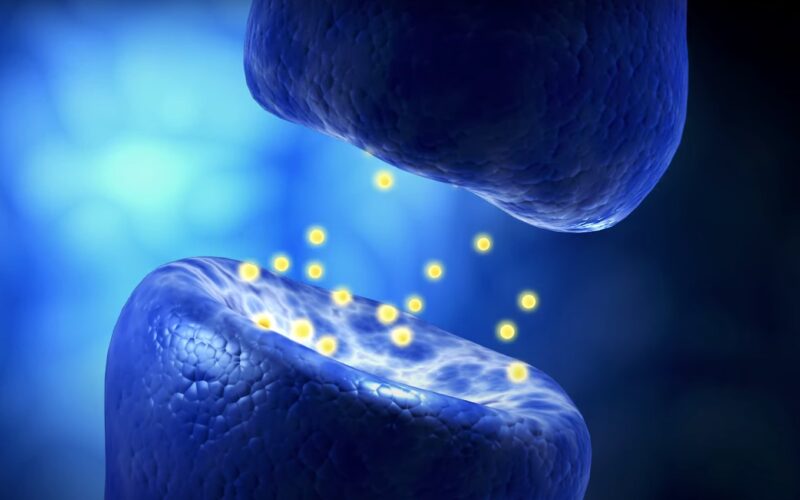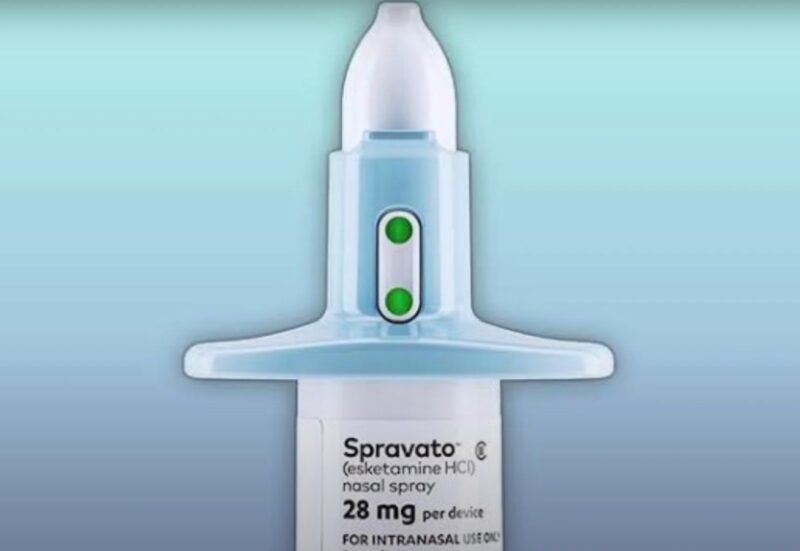Spravato therapy, a groundbreaking treatment for depression, has garnered significant attention in the medical community for its unique approach to tackling this pervasive mental health issue.
Unlike traditional antidepressants that primarily focus on serotonin or norepinephrine pathways, esketamine operates on a different level, targeting the brain’s glutamate system.
This innovative therapy offers hope, particularly for individuals suffering from treatment-resistant depression, a condition where standard treatments fail to yield satisfactory results.
Today, we will discuss the following factors:
- Represents a significant shift in depression treatment, targeting the brain’s glutamate system rather than the traditional serotonin or norepinephrine pathways.
- A major advantage over traditional antidepressants that may take weeks to work.
- Boosts glutamate levels in the brain, playing a key role in synaptic connections and influencing mood and cognitive functions.
Let us begin.
Spravato’s Effects on the Brain

Spravato’s impact on the brain is profound and multifaceted, significantly altering brain chemistry and enhancing neural pathways. This medication offers rapid relief from depressive symptoms, a notable advantage over conventional antidepressants that often take weeks to become effective.
| Aspect | Effect of Spravato |
|---|---|
| Symptom Relief | Rapid alleviation of depressive symptoms, including suicidal ideation |
| Neuroplasticity | Promotes the formation of new neural connections |
| Brain Function | Long-term improvements in brain function and mood regulation |
| Neurotransmitters | Strengthens neurotransmitter function, enhancing mood stability |
| Speed of Action | Acts significantly faster than conventional antidepressants |
This quick action is particularly crucial for individuals with severe depression, especially those grappling with suicidal ideation. In such cases, the speed at which Spravato acts can be life-saving, providing immediate relief in situations where every moment counts.
Mechanism of Action

As a therapeutic agent, it diverges significantly from standard antidepressants in its mechanism of action. Traditional antidepressants typically target the serotonin or norepinephrine pathways, but Spravato takes a different route by primarily boosting glutamate levels in the brain.
Glutamate, an essential neurotransmitter, plays a pivotal role in synaptic connections, which are fundamental to the transmission of neural signals. This neurotransmitter is crucial in regulating various brain functions, including mood and cognitive abilities.
By enhancing glutamate activity, Spravato can effectively modify the neural processes that are often dysregulated in depression. The drug’s specific action on the N-methyl-D-aspartate receptors, a critical component of the glutamate pathway, is what sets it apart from traditional depression treatments.
These receptors are involved in synaptic plasticity and memory function, and their modulation is thought to contribute to the antidepressant effects of Spravato.
By influencing these receptors, Spravato facilitates a more robust and rapid synaptic response, which can lead to quicker symptom relief compared to the gradual effects of conventional antidepressants. This unique mechanism is particularly beneficial in addressing the symptoms of severe depression.
For individuals experiencing acute depressive episodes or those who have not responded to traditional treatments, the rapid action of Spravato on the brain’s glutamate system can be life-changing.
It offers a new avenue for relief, especially for those with treatment-resistant depression, by altering brain chemistry in a way that can quickly lift mood and improve cognitive function.
Administration and Dosage

Spravato is uniquely administered as a nasal spray, a method chosen for its rapid absorption into the bloodstream, leading to a quicker onset of action compared to oral medications. This mode of administration is particularly beneficial for patients who need immediate relief from severe depressive symptoms.
The nasal spray allows the active ingredient, esketamine, to bypass the digestive system and directly enter the bloodstream, providing a more direct and efficient route to the brain.
Dosage and Frequency
The dosage and frequency of Spravato treatment are carefully determined and tailored to each patient’s specific needs. Typically, the treatment starts with a more intensive phase, where the nasal spray is administered twice a week for a set period.
This is followed by a maintenance phase, where the frequency of administration may be reduced depending on the patient’s response to the treatment. The exact dosage and schedule are determined by a healthcare professional, based on factors such as the severity of symptoms, patient response, and any side effects experienced.
Medical Supervision and Licensed Clinics
Due to its potent effects and potential side effects, Spravato treatment is carried out under strict medical supervision in licensed clinics. This controlled environment ensures that patients receive the correct dosage in a safe manner.
During and after each treatment session, patients are observed by healthcare professionals to manage any immediate side effects, such as dizziness or dissociation, and to ensure their safety.
Patient Monitoring
Continuous monitoring of patients receiving Spravato therapy is a critical aspect of the treatment process. Healthcare professionals assess the patient’s response to the medication, monitor for any adverse reactions, and provide support throughout the treatment course.
This monitoring is essential not only for ensuring the efficacy of the treatment but also for safeguarding the patient’s overall well-being.
What are the Benefits?
The benefits of Spravato therapy are manifold.
Rapid Symptom Relief
One of the most significant benefits of Spravato therapy is its ability to provide rapid relief from depressive symptoms. Unlike traditional antidepressants, which can take weeks or even months to show effects, patients undergoing Spravato treatment often report noticeable improvements in mood and cognitive function within hours or days.
This swift response is particularly crucial for individuals suffering from severe depression, where every moment counts. The ability of Spravato to quickly alleviate symptoms can be a critical factor in preventing the worsening of depressive states and in providing immediate support to those in urgent need.
Reduction in Suicidal Thoughts
Another key benefit of Spravato therapy, as highlighted in clinical trials, is its efficacy in reducing the frequency of suicidal thoughts among patients with severe depression. This is a significant breakthrough, considering the challenge of managing suicidal ideation in traditional depression treatments.
Its rapid action on the brain’s neurotransmitter systems can lead to a quick decrease in the intensity and frequency of suicidal thoughts, offering a lifeline to those at high risk.
Effective in Treatment-Resistant Depression
Spravato has emerged as a promising alternative for individuals with treatment-resistant depression. For many patients, standard antidepressants and psychotherapies do not yield significant improvements.
Its mechanism of action and its ability to target different neurotransmitter systems make it an effective option for those who have struggled to find relief with other treatments. This positions Spravato as a vital addition to the arsenal of treatments available for managing depression, especially in its more challenging forms.
Long-Term Mood and Cognitive Function Improvement
Beyond the immediate relief of depressive symptoms, Spravato therapy has been associated with long-term improvements in mood and cognitive function. This benefit is particularly important for individuals with chronic depression, as it suggests the potential for sustained recovery and an enhanced quality of life.
The improvements in cognitive functions, such as memory, concentration, and decision-making, further contribute to the overall well-being of patients, enabling them to lead more fulfilling and productive lives.
Potential Side Effects and Considerations

While Spravato offers substantial benefits, it is not without potential side effects.
Dissociative or Sedative Effects
One of the most notable side effects associated with Spravato is the potential for dissociative or sedative effects. These can manifest as a feeling of detachment from oneself or one’s surroundings, altered perception, dizziness, and drowsiness.
Due to these effects, patients are required to be carefully monitored during treatment sessions. This monitoring ensures that any adverse reactions can be promptly addressed and that patients do not operate vehicles or machinery until they have fully recovered from the treatment’s immediate effects.
Considerations for Specific Medical Conditions
Spravato may not be suitable for patients with certain medical conditions. For instance, individuals with a history of substance abuse, severe heart or blood pressure problems, or those with a predisposition to psychotic disorders like schizophrenia may be advised against using Spravato.
Additionally, patients with a history of intracerebral hemorrhage or aneurysm may be at increased risk. Therefore, a thorough evaluation of personal and family medical history is crucial before starting treatment.
Interactions with Other Medications
Patients currently taking specific medications may need to avoid Spravato. There can be interactions with CNS depressants, stimulants, and other medications that affect neurotransmitter levels, which could either potentiate or diminish the effectiveness and safety of Spravato.
It is essential for patients to disclose all medications they are taking, including over-the-counter drugs and supplements, to their healthcare provider.
FAQs
Can Spravato cause psychosis?
While Spravato can cause dissociative effects, which are different from psychosis, there is a potential risk, especially in individuals with a history of psychotic disorders like schizophrenia.
Does Spravato increase serotonin?
No, Spravato primarily works by targeting the NMDA receptors in the brain to boost glutamate levels, not serotonin. Unlike traditional antidepressants that increase serotonin levels, Spravato’s mechanism of action is different and focuses on the glutamate pathway.
What are the long-term effects of Spravato?
The long-term effects of Spravato can include sustained improvement in depressive symptoms and enhanced mood regulation. As it is a relatively new treatment, more research is needed to fully understand its long-term impact.
Can Spravato cause anger?
Anger is not commonly reported as a side effect of Spravato. However, individual reactions to medications can vary. If a patient experiences significant mood changes, including anger, while using Spravato, they should discuss this with their healthcare provider.
The Bottom Line
Spravato therapy marks a significant breakthrough in treating depression, particularly for those with treatment-resistant forms. By targeting glutamate pathways and offering rapid symptom relief, it provides a much-needed alternative to traditional antidepressants.
Its ability to potentially reduce suicidal thoughts and improve neurotransmitter function makes it a valuable addition to depression treatment options. Available by prescription in licensed clinics, Spravato represents a beacon of hope for many suffering from this debilitating condition, paving the way for more innovative treatments in mental health.
